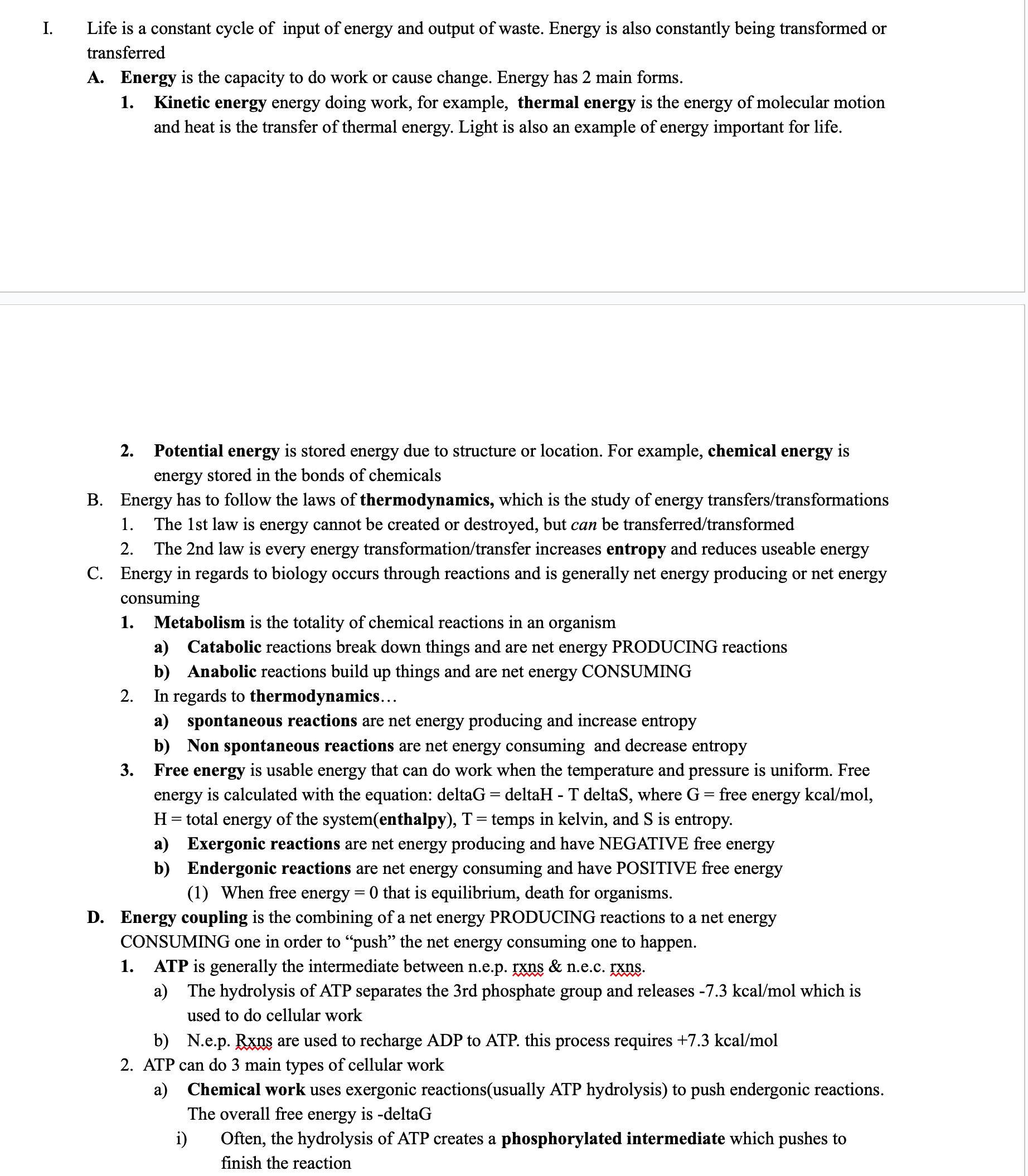Describe the role of energy in biological systems, including its forms and the laws of thermodynamics.

Understand the Problem
The question appears to summarize concepts related to energy in biological systems, including types of energy, laws of thermodynamics, and metabolic processes. It aims to convey the importance of energy transformations and their role in biological reactions.
Answer
Energy forms include kinetic and potential. Thermodynamics governs energy transformation, with processes increasing entropy. Cells use energy for metabolism.
Energy in biological systems exists in various forms, primarily kinetic and potential energy. Biological processes follow the laws of thermodynamics, where energy is neither created nor destroyed (First Law) and every energy transformation increases entropy (Second Law). Cells use energy for metabolism, which includes both catabolic and anabolic reactions.
Answer for screen readers
Energy in biological systems exists in various forms, primarily kinetic and potential energy. Biological processes follow the laws of thermodynamics, where energy is neither created nor destroyed (First Law) and every energy transformation increases entropy (Second Law). Cells use energy for metabolism, which includes both catabolic and anabolic reactions.
More Information
Energy is crucial for powering cellular processes like DNA replication and metabolism. The first law ensures energy flow, while the second highlights inefficiencies, possibly resulting in heat loss.
Tips
A common mistake is confusing kinetic and potential energy forms. Remembering that energy can transform from one type to another without being lost is essential.
Sources
- The Laws of Thermodynamics in Biological Systems - ThoughtCo - thoughtco.com
- 3.1: The Laws of Thermodynamics - Biology LibreTexts - bio.libretexts.org
- The Laws of Thermodynamics – Biology - UH Pressbooks - pressbooks-dev.oer.hawaii.edu
AI-generated content may contain errors. Please verify critical information